Our City
300 Days of Sunshine
At the foot of the Rocky Mountains, Denver is known for sweeping views and wide array of outdoor activities.
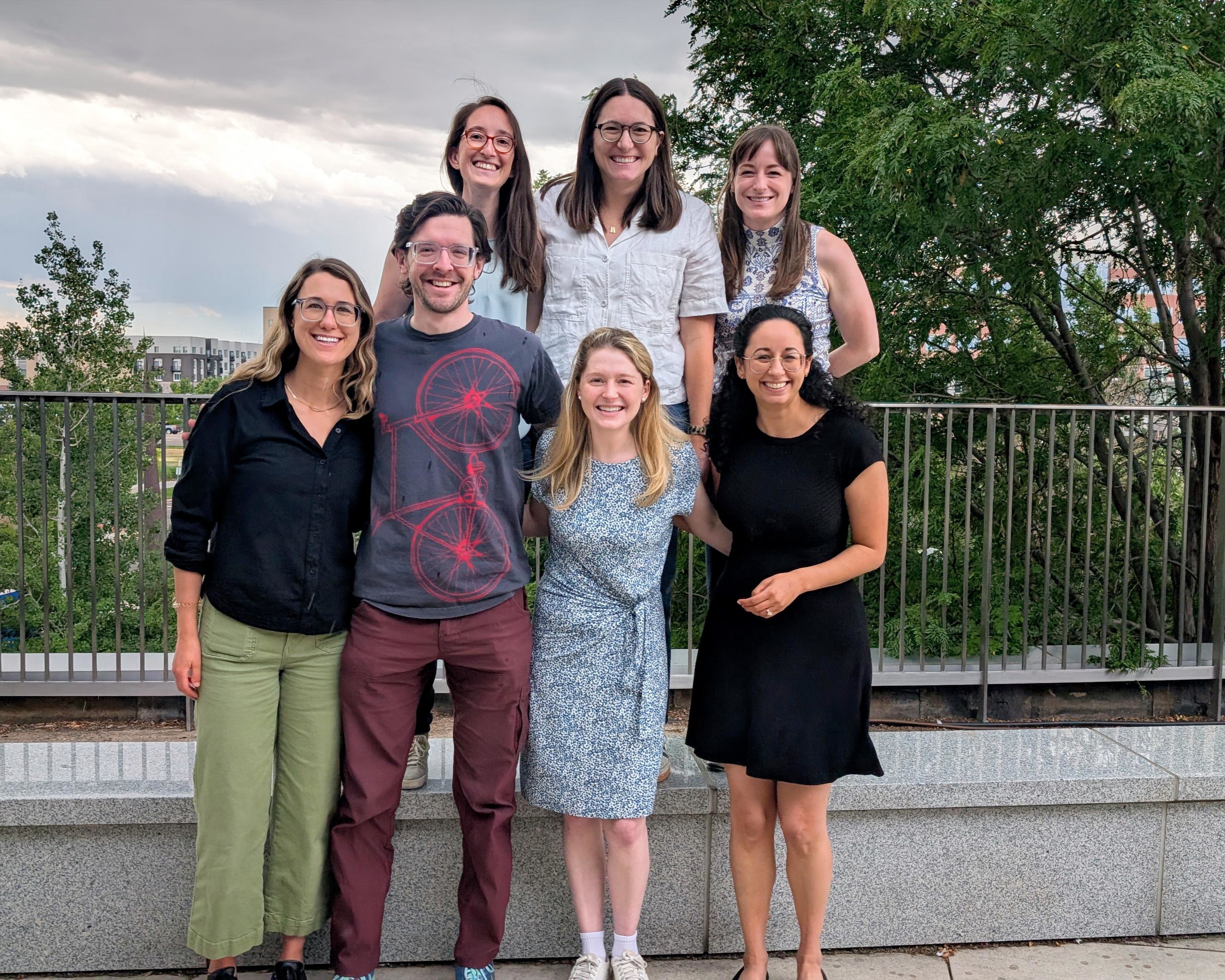
Welcome to our Pediatric Endocrinology Fellowship Training Program!
The University of Colorado School of Medicine (CU SOM) Department of Pediatrics and Children's Hospital Colorado (CHCO) offer a three-year fellowship in pediatric endocrinology. In addition, the fellowship can be extended into a four-year fellowship if a fellow is doing a combined pediatric and adult endocrinology fellowship. Children's Hospital Colorado is a freestanding children's hospital with a full affiliation with the University of Colorado School of Medicine for training pediatric residents and fellows. Children’s Hospital Colorado is a top 10 best children’s hospital in the country and the Department of Endocrinology is consistently ranked within the top 5 best programs in the United States. We serve a diverse population from a large catchment area, in addition to Colorado, but also including Wyoming, Montana, North and South Dakota, Nebraska, Kansas, and New Mexico. The fellowship is fully accredited by the Accreditation Council of Graduate Medical Education (ACGME).
Program Aims:
Our City
300 Days of Sunshine
At the foot of the Rocky Mountains, Denver is known for sweeping views and wide array of outdoor activities.
Our Hospital
Ranked No. 1 in the Rocky Mountain Region
Children’s Hospital Colorado is consistently ranked in the top 10 on the U.S. News Best Children’s Hospitals Honor Roll.Our Department
Ranked Top 5
Our Endocrinology and Diabetes Department at Children's Hospital Colorado is consistently ranked Top 5 of the best pediatric programs in the nation according to U.S. News & World Report.
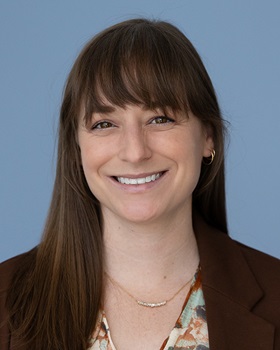
She/her/hers
Pediatric Endocrinology Fellow 2025-2028
Medical School: University of North Carolina School of Medicine
Residency: Stanford
Why I chose Colorado: Excellent
clinical and research opportunities in a place with great people and beautiful outdoors.
Research Interests: I'm interested in using qualitative and mixed methods to explore topics at the intersection of bioethics and endocrinology,
especially as they relate to patient experiences with illness and health care.
Favorite thing to do in Colorado: Still learning the area, but I'm excited to do a lot of hiking!
Favorite food: Anything
that combines cheese and bread.
Fun fact: I was a competitive swimmer in college.
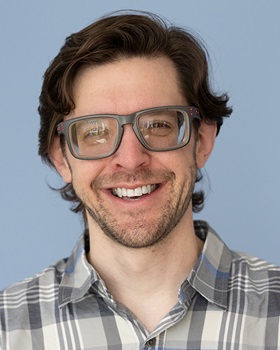
He/him/his
Pediatric Endocrinology Fellow 2025-2028
Medical School: Jacobs School of Medicine and Biomedical Sciences at the University at Buffalo
Residency: University of Colorado
School of Medicine
Why I chose Colorado: Best combination of location (mountains), clinical training, and research opportunities. Also my fiancé loves Denver.
Research Interests: Diabetes
Camp, extreme environments and pediatric medical complexity, pediatric wilderness medicine and informatics.
Favorite thing to do in Colorado: Silver Team, hiking (cliche, but true)
Favorite food: Peanut
butter, chocolate chips, small batch ice cream, apples, and oatmeal with cinnamon.
Fun fact: I won my 4th grade spelling bee with the word, "extraterrestrial".
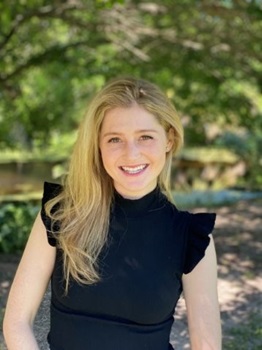
She/her/hers
Pediatric Endocrinology Fellow 2024-2027
Medical School: Louisiana State University
Residency: Virginia Commonwealth University
Why I chose Colorado: I
was excited for the opportunities at the Barbara Davis Center due to my strong interest in type 1 diabetes. On my virtual interview day, I really got a sense that the faculty and fellows were very invested in my learning.
Research Interests: Type
1 diabetes, health care disparities and technology use.
Favorite thing to do in Colorado: Hiking and exploring the natural wonders Colorado has to offer.
Favorite food: Ice cream, pasta, fruit,
and iced coffee.
Fun fact: I was once bitten by an emu.
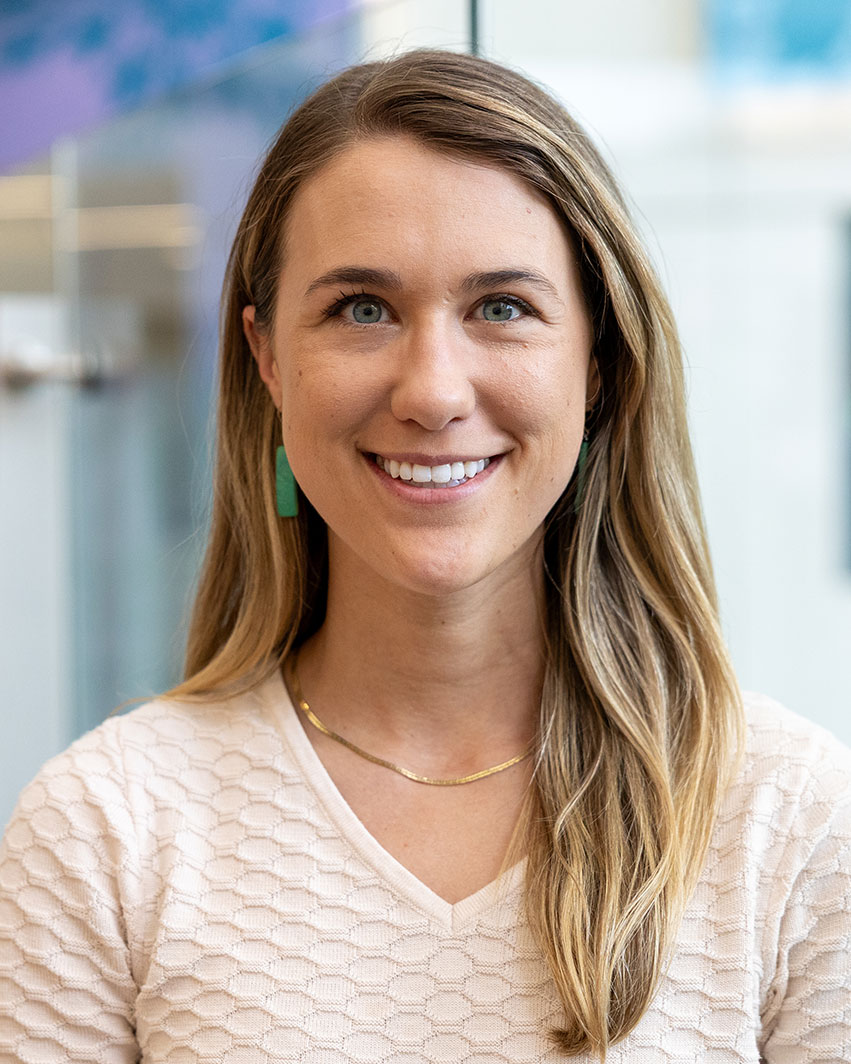
She/her/hers
Pediatric Endocrinology Fellow 2024-2027
Medical School: Duke University School of Medicine
Residency: University of Colorado School of Medicine
Why I chose Colorado: I
did my residency here and I'm so excited to stay! It is a very warm and inclusive environment for trainees and you can't beat all the outdoor options for time outside of work.
Research Interests: Type 1 diabetes, health
care disparities and technology use.
Favorite thing to do in Colorado: Hiking! With walks around Wash Park or Cheesman being a close second
Favorite food: Cookie dough
Fun fact: I
lived in Singapore for a year of med school.
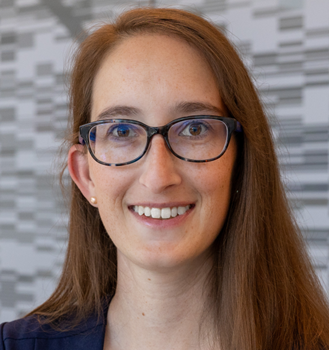
She/her/hers
Pediatric Endocrinology Fellow 2023-2026
Medical School: University of Maryland School of Medicine
Residency: University of Maryland Medical Center
Why I chose Colorado: I was really excited by the opportunities at a stand-alone Children’s hospital, the large patient catchment area and by how warm and welcoming all the faculty and fellows I met during interview day were! I am also super excited to be able to
do a lot of outdoor activities in Colorado and be closer to my family.
Research Interests: Not sure yet as I am interested in so many things – puberty, transgender medicine and genetic disorders affecting endocrine system.
Favorite thing to do in Colorado: Skiing!
Favorite food: Any kind of noodles (pho, ramen, pad Thai, etc.)
Fun fact: I grew up on a ranch and vineyard. I also rode horses as a child.
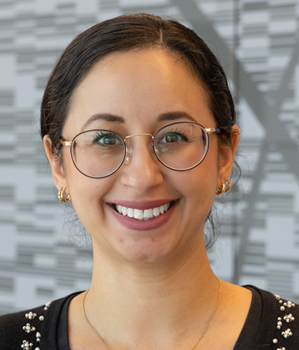
She/her/hers
Internal Medicine and Pediatric Endocrinology Fellow 2022-2026
Medical School: David Geffen School of Medicine at UCLA
Residency: Baylor College of Medicine (Combined
Med Peds)
Why I chose Colorado
for fellowship: Huge catchment area, lots of pathology, beautiful outdoors, easy to fly to back home, etc.
Research/clinical interests: Transitions of care for type 1 DM
Favorite thing to do in Colorado: Hiking!
Favorite food: Mediterranean
Fun fact: I love baking and cooking. I make excellent focaccia!
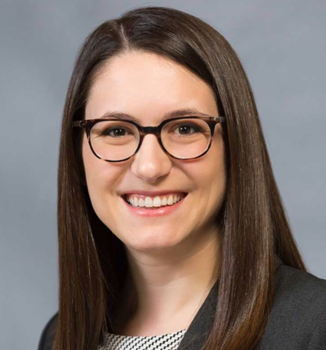
She/her/hers
Pediatric Endocrinology Fellow 2023-2026
Medical school: Medical College of Georgia
Residency: University of Colorado School of Medicine
Why I chose Colorado for fellowship: The people, the place, and the training! I did residency here and loved the community at Children's and am so thankful I get to stay. The faculty are great teachers, have amazing research opportunities, and are so kind. There are innovative clinical
environments to learn in with the multidisciplinary clinics and the combination of training at Children's and the Barbara Davis Center. And of course, when not at work, it's amazing to have the Colorado sunshine and all the fun things to do here in
Denver!
Research/clinical interests: Still figuring this out!
Favorite thing to do in Colorado: Bike rides with my family to the many fun parks in Denver and exploring nearby mountain towns (especially in the summer!)
Favorite food: Any of the pastries @ Bahn and Butter, the nachos @ Los Chingones, the Bliss pizza @ Ester's, or ice cream in a pretzel cone @ Sweet Cow (all are close to the hospital, check them out!)
Fun fact: I
have 3 boys and 2 of them are identical twins.
Training for fellows in pediatric endocrinology involves intensive clinical training in all aspects of clinical pediatric endocrinology. The large volume and broad range of endocrine pathology seen by Children’s Hospital endocrinologists ensures an optimal clinical experience for endocrine fellows.
The first year of the Pediatric Endocrinology Fellowship consists of clinical training and incorporates some preparation for the second year, while the second and third year consist mainly of research with some clinical training (continuity clinics, inpatient consultation). During year one of the clinical track you will identify an area of research interest and a mentor for pursuit during the second year.
All fellows are directly supervised by faculty members (CHCO, UCH, or BDC) specific to that rotation and by the inpatient consult attending for the inpatient consultation rotation. This attending physician shall be available at all times to the endocrine fellow. It is the responsibility of the fellow to communicate effectively and in a timely fashion with the attending physician as well as other members of the Endocrine Faculty. At each stage of training, the goal is to provide a level of supervision that ensures patient safety and maximizes education while promoting the trainee’s sense of independence and autonomy
Call for pediatric endocrine fellows are at home call. They are required to answer phone calls from parents of patients, outpatient phone consults and inpatient consult service. They rarely have to go into the hospital for an urgent consult. Pediatric endocrinology fellows take call up to 5 days per month, and weekends are divided throughout the fellowship.
Fellows are expected to attend the following educational conferences (roughly 1-2 per week) during the fellowship program:
Note: All conferences offer an in-person and virtual format to accommodate our team members' clinic and call schedules.
Fellows Academic Half Day: Second Thursday per month, 1-5 pm
Conference includes pediatric endocrinology fellows, program director/associate program director, and other endocrine and diabetes faculty members. This conference includes our board review course (Fundamentals of endocrinology), clinical guideline review, review of cases with experts and training in research methods as well as methods for wellness and resiliency. During Fellows' Academic Half Day, all fellows are free from patient care responsibilities.
Pediatric Endocrine Case Conference: Second Monday and Fourth Tuesday per month, 11 am - 1 pm
Conference includes pediatric endocrinology fellows, pediatric endocrine faculty, staff (including but not limited to our amazing Pharmacy, Nursing and and Lab Teams). Cases are brought by both fellows and faculty for discussion and review. Fellows present a more formal case with a detailed literature search 6 times per year during their first year. This is also the forum for discussion of topics related to the laboratory or pharmacy.
In addition, Journal club is a component of this conference. Second- and third-year fellows present 2-3 times per year. Journals are reviewed by the presenter to identify articles that are pertinent to pediatric endocrinology and diabetes. Reviewers select 3-5 articles for detailed discussion. Fellows are encouraged to select 2-3 articles for more in depth discussion of study design, statistics, and interpretation of results. This facilitates skill in critical reading of the literature, analysis of study design, statistics, extrapolation of research studies to clinical care of children with diabetes and other endocrine problems.
Another unique component of this conference is that we use this conference time to schedule quarterly joint BDC and Endocrine Meeting of the Minds, professional development and leadership trainings.
Diabetes Conference: Tuesdays, 12-1 pm
Conference includes pediatric endocrine fellows and pediatric diabetes faculty. Endocrine fellows present in the conference annually. Topics include research in progress, clinical topics related to diabetes care, instruction on effective reading of the literature, and much more.
Endocrine Grand Rounds: Wednesdays, 8-9 am
Conference includes pediatric endocrine fellows and pediatric endocrine faculty, endocrine fellows, and faculty. Endocrine fellows present once as a first-year fellow. Topics include challenging endocrine cases, updates to clinical practice of endocrinology, invited speakers from across the country, etc..
Pediatric Endocrine Summer School Lecture Series: July-August, Dates and times vary
Conference consists of varied topics pertinent to the clinical care of children with diabetes and other endocrine problems. Presenters are faculty in the division of pediatric endocrinology and the Barbara Davis Center. The purpose is to provide a broad overview of the general topics of pediatric endocrinology and diabetes and provide the fellows with a foundation for the clinical care of children with these disorders.
Quarterly Endocrine Meeting: Every 3 months, Monday, 8 am-12 pm
Endocrine and diabetes faculty and fellows attend this conference. Conference includes an hour of didactic lectures from disciplines throughout the University (radiology, urology, genetics, reproductive endocrinology, etc.), time for morbidity and mortality. Conference includes an hour for the discussion of disorders of sexual differentiation in a multi-disciplinary team.
Department of Pediatrics Conferences
While these conferences are not required for fellows to attend, our fellows are encouraged to explore and attend ones that interest them. Some of our Pediatric Endocrinology Fellow Alumni become guest speakers at these conferences!
Department of Pediatrics and Other Research Conferences
There are multiple research focused conferences throughout the Anschutz Medical Campus, including at Children’s Hospital and the Barbara Davis Center. All research conferences are shared with the fellows as optional learning opportunities.
The University of Colorado Anschutz Medical Campus (CU Anschutz) is the largest academic health center in the Rocky Mountain region which brings together on the same campus three major hospitals and educational, administrative, and research facilities for all six health science schools of the University of Colorado. The 11.3 million ft2 of state-of-the-art facilities has benefited from over $4 billion of investments to date. The 230-acre campus provides adjacencies of clinical, educational, and research facilities all within walking distance of each other, building a new culture of collaboration among clinicians, investigators, and educators that invigorates research and innovation. An adjacent biotechnology park helps facilitate close collaboration between University investigators, industry, and the private sector.

The Department of Pediatrics is a national and international leader in child health research. Our research program consistently ranks among the top three departments of pediatrics nationwide in NIH research funding. Our faculty are active leaders of research initiatives spanning the full range of basic and clinical investigations, ensuring that discoveries made in the laboratory will be translated into tomorrow’s cures.
Much of our research is organized into highly collaborative centers and institutes supported by state-of-the-art facilities that bring diverse expertise and perspectives to bear on challenging aspects of child health. Our faculty are also passionate teachers training students and fellows to become tomorrow’s research leaders.
Learn more about the Department of Pediatrics research milestones, NIH research funding, and recent faculty publications.
The Barbara Davis Center (BDC) is a consistent incubator for novel ideas and discoveries in the immunology, genetics, and cell biology of diabetes that have developed into diagnostic assays now standard in diabetes research. The BDC research goals include investigation of the causes of type 1 diabetes, the early detection of autoimmunity, prevention and early intervention. In addition we are developing new treatments, including a focus on the artificial pancreas, and prevention strategies for complications of both type 1 and type 2 diabetes, and the outcomes of care of type 1 diabetes.
Learn more about the BDC's advancing breakthroughs in diabetes treatment here
Also, learn about the University of Colorado Denver Diabetes Research Center (DRC) here.
In addition to the SOC mentors, our pediatric endocrinology fellows are partnered with an Endocrine or Diabetes faculty with a research focus at the start of the fellowship. Fellows work with both their SOC and faculty mentors throughout their fellowship to learn and gain valuable research training and mentorship while working on their research project.
In addition, research experts from our faculty team at CHCO, the BDC and CU Anschutz are invited to the monthly Fellows' Academic Half Day Conference for research-related lectures and trainings (for example, topics include research methods/study designs, methodology, patient safety and quality improvement, etc.).
Fellows are also invited to weekly, optional research office hours (in-person/virtual), hosted by one of our expert peds endo research faculty.
T32 Training Program for Pediatric Endocrinologists and Diabetes Psychologists
Pediatric Biostatistics for Clinicians Course
Advanced Degrees Available at CU
Third Year Fellows
Erin Bewley, MD
Monique Maher, MD
Alex Sawyer, MD
Second Year Fellows:
Hillary Connell, MD
Clare Parker, MD
First Year Fellows:
Currently, the first-year fellows are recruiting their SOC mentors.
Research is an important component of the pediatric endocrinology fellowship program. Training in research methods begins in the first year. The goal is to provide trainees with an intensive introduction to the principles and techniques of clinical and/or laboratory investigation.
In the first year of fellowship, fellows have 1-2 months dedicated to research to allow for the identification of a mentor and a project. Fellows will then prepare a research proposal with the guidance of the mentor.
With the guidance of the fellowship program director and research director, fellows will select a Scholarly Oversight Committee (SOC) in the second half of the first year of fellowship to help oversee the research training period.
The SOC is composed of at least 3 faculty members who:
Requirements for the SOC include one pediatric endocrine faculty member, another endocrine faculty member (either pediatric or adult) and a member outside of the divisions of pediatric and adult endocrinology. Additional SOC members may be recruited as needed by the fellow.
During the second and third year of fellowship, fellows are expected to spend around 75-80% of their time working on research projects under the direction and guidance of the fellow’s primary mentor(s).
We require fellows to complete a scholarly work product by the end of the pediatric endocrinology fellowship. While the minimal requirement of success is preparation of a scholarly research proposal, the SOC will regularly assess progress towards completion of experimental studies, submission of abstracts to national meetings, presentations of posters or oral presentations at national meetings, submission and publication of study results, and the submission of grant applications. Members of the SOC are also required to sign-off on the scholarly work and personal statement submitted to the American Board of Pediatrics for board eligibility.
Spring Year One:
Fall/Spring Year Two and Fall Year Three:
Spring Year Three:
Our pediatric endocrinology fellows have numerous opportunities to learn about and participate in quality improvement, research, career development, professional and leadership development, and much more! See the list of learning and educational opportunities below:
Pediatric Fellowship Educational Series
Professional & Leadership Development Trainings at CU
CU Strauss Health Sciences Library Resource Workshops
To facilitate a conducive environment for academic success, the CU Strauss Library provides research/clinical/academic guides, clinical point of care tools, and countless on-site and virtual services, etc.
Medical Education Opportunities
Teaching medical students and leading small groups
Teaching in pediatric resident academic half day
Subspecialty Excellence in Educational Leadership & Scholarship (SEELS) Program
Residents and Fellows ad Educator Elective
GME QI/Safety Incentive Program
IHSQE Certificate offered through University of Colorado
Quality Safety Academy Workshops offered through University of Colorado Hospital (UCH)
QI/Safety grant opportunities through the University of Colorado School of Medicine
To be considered for admission to our program, applicants must have successfully completed training in a 3-year ACGME-accredited residency program in Pediatrics.
We particularly hope to attract applicants who are motivated and self-directed learners who want to develop academic careers based on excellence in research, scholarship, and clinical pediatric endocrinology. We encourage individuals of all backgrounds to apply, including those from backgrounds traditionally underrepresented in medicine.
We participate in the National Resident Matching Program (NRMP) - specifically in the Medicine and Pediatric Subspecialty Fall Match. We do not offer any positions outside of the match. To register for the Match in the NRMP’s Registration, Ranking, and Results® (R3®) system, please visit the registration page. We accept applications online electronically through the Electronic Residency Application Service (ERAS). Please go to “Applying to Fellowships with ERAS” for registration details. Applicants must register with both NRMP and ERAS. All application material should be submitted through the Electronic Residency Application Service (ERAS).
Applications should include the following documents:
In accordance with University of Colorado School of Medicine and national guidelines, for the upcoming/current fellowship application cycle (positions starting July 2027), we will offer virtual interviews only (no in-person interviews).
| Date | Activity |
| Monday, May 31, 2026 | ERAS 2026 season ends at 5 p.m. ET. |
| Wednesday, June 3, 2026 | ERAS 2027 season begins at 9 a.m. ET. |
| Thursday, June 4, 2026 | EFDO will release tokens to fellowship applicants. |
| Wednesday, July 1, 2026 | July cycle fellowship applicants may begin submitting applications to programs at 9 a.m. ET. |
| Wednesday July 15, 2026 | July cycle fellowship programs may begin reviewing applications at 9 a.m. ET. |
| May 31, 2027 | ERAS 2027 season ends at 5 p.m. ET. |
| Dates | Activity |
| Wednesday, August 26, 2026 | Match Opens |
| Wednesday, September 30, 2026 | Ranking Opens |
| Wednesday, October 28, 2026 | Quota Change Deadline |
| Wednesday, November 18, 2026 | Rank Order List Certification Deadline |
| Wednesday, December 2, 2026 | MATCH DAY |
Our fellowship will be conducting virtual interviews this upcoming interview season. We look forward to sharing our program with you and getting to know more about you!
Interviews will be held mid-August to end of October. The interview day can last anywhere between 8 am to 5 pm MST and will occur via video conference.
On the interview day, candidates will:
The University of Colorado offers salary and benefits packages that are competitive with other fellowship programs across the country. Current salary levels can be found at the School of Medicine - Graduate Medical Education Stipends Page.
Carolina Jensen
Education Program Coordinator, Pediatric Endocrinology Fellowship
Children’s Hospital Colorado
University of Colorado Anschutz Medical Campus
13123 E 16th Ave, Box B265
Aurora, CO 80045
Tel: 720-777-3187
Fax 720-777-7301
Email: [email protected]
Natalie Nokoff, MD, PhD
Program Director, Pediatric Endocrinology Fellowship
Children’s Hospital Colorado
University of Colorado Anschutz Medical Campus
13123 E 16th Ave, Box B265
Aurora, CO 80045
Email: [email protected]
Taylor Triolo, MD
Associate Program Director, Pediatric Endocrinology Fellowship
Barbara Davis Center for Childhood Diabetes
University of Colorado Anschutz Medical Campus
1775 Aurora Ct, Box A140
Aurora, CO 80045
Email: [email protected]
Recent Alumni Fellows
2022-2025
Ideen Tabatabai, MD
Residency: Loma Linda University
Medical School: University of Oklahoma College of Medicine
2022-2025
Elizabeth Vargas, DO
Residency: University of Connecticut
Medical School: New York Institute of Technology College of Osteopathic Medicine
2021-2024
Rachel Sewell, MD
Post-Fellowship: Clinical Assistant Professor, Stanford Health Care, Palo Alto, CA
Residency: University of Colorado School of Medicine
Medical School: University of Colorado School of Medicine
2021-2024
Lauren Waterman, MD
Post-Fellowship: Assistant Professor, Barbara Davis Center for Diabetes, Aurora, CO
Residency: University of Pittsburgh Medical Center
Medical School: University of Pittsburgh School of Medicine
2020-2023
Victoria Elliott, MD
Post-Fellowship: Assistant Professor, Nationwide Children’s Hospital, Columbus, OH
Residency: John Hopkins All Children’s Hospital
Medical School: University of Louisville School of Medicine
2020-2023
Meghan Pauley, DO
Publications
Post-Fellowship: Assistant Professor, Barbara Davis Center for Diabetes, Aurora, CO
Residency: Marshall University School of Medicine
Medical School: West Virginia School of Osteopathic Medicine
2019-2023
Erin Finn, MD (Combined Adult/Pediatrics Program)
Publications
Post-Fellowship: Assistant Professor, Children’s Hospital, Aurora, CO
Residency: Baylor College of Medicine
Medical School: University of Colorado School of Medicine
2019-2022
Anna Valentine, MD
Publications
Post-Fellowship: Assistant Professor, Children’s Hospital, Colorado Springs, CO
Residency: Nationwide Children’s Hospital
Medical School: University of Cincinnati College of Medicine
2018-2021
Amy Rydin, MD
Publications
Post-Fellowship: Dell Children’s Hospital, Austin, TX
Residency: Northwestern University Lurie Children’s
Medical School: University of Texas Health Science Center at Houston - McGovern Medical School
2018-2021
Shoshana Tell, MD
Publications
Post-Fellowship: Hackensack Meridian Health, Hackensack, NJ
Residency: New York University Langone Medical Center
Medical School: Albert Einstein College of Medicine
2017-2020
Richard Ogden Roberts, MD, MPH, FAAP
Publications
Post-Fellowship: Assistant Professor, Texas Children’s Hospital and Baylor College of Medicine
Residency: University of California Los Angeles (Mattel Children’s Hospital)
Medical School: University of Virginia School of Medicine
2017-2020
Kalie Tommerdahl, MD
Publications
Post-Fellowship: Seattle Children’s Hospital, Seattle, WA
Residency: Nationwide Children’s Hospital
Medical School: Northwestern University the Feinberg School of Medicine
2016-2019
Sonalee Ravi, MD
Publications
Post-Fellowship: Advocate Children’s Medical Group, Wheaton, IL
Residency: Saint Louis University School of Medicine
Medical School: Saint Louis University School of Medicine
2016-2019
Taylor Triolo, MD
Publications
Post-Fellowship: Assistant Professor, Barbara Davis Center for Diabetes, Aurora, CO | Associate Program Director, Pediatric Endocrinology Fellowship
Residency: University of Colorado School of Medicine
Medical School: University of Colorado School of Medicine
2015-2018
Petter Bjornstad, MD
Publications
Post-Fellowship: Seattle Children’s Hospital, Seattle, WA
Residency: University of Colorado School of Medicine
Medical School: Royal College of Surgeons Dublin
2015-2018
Rebecca Ohman-Hanson, MD
Publications
Post-Fellowship: Senior Instructor, Children’s Hospital, Aurora & Colorado Springs, CO
Residency: University of Colorado (Children's Hospital Colorado)
Medical School: Georgetown University School of Medicine
2014-2017
Natalie Nokoff, MD, PhD
Publications
Post-Fellowship: Associate Professor, Children’s Hospital, Aurora, CO | Co-Medical Director, Pediatric CTRC | Program Director, Pediatric Endocrinology
Residency: University of Colorado School of Medicine
Medical School: The Warren Alpert Medical School of Brown University
2013-2016
Shanlee Davis, MD, PhD
Publications
Post-Fellowship: Associate Professor, Children’s Hospital, Aurora, CO
Residency: University of Colorado School of Medicine
Medical School: University of Colorado School of Medicine
2013-2016
Kimberly Simmons, MD, MPH/MSPH
Publications
Post-Fellowship: Assistant Professor, Barbara Davis Center for Diabetes, Aurora, CO
Residency: Saint Louis University School of Medicine
Medical School: Saint Louis University School of Medicine
Adult-Pediatric Endocrinology Combined Fellowship Training Program |
The University of Colorado offers a 4-year combined Adult and Pediatric Endocrinology Fellowship Training Program at the Anschutz Medical Campus in Aurora, Colorado. Created in 2014, this program is offered to graduates of med-peds residency training programs. With Children’s Hospital Colorado and University of Colorado Hospital adjacent to each other on the Anschutz Medical Campus, trainees have ample opportunity to attend conferences at both institutions regardless of their specific hospital assignment. For more information, visit the Adult-Pediatric Combined Training Website. |